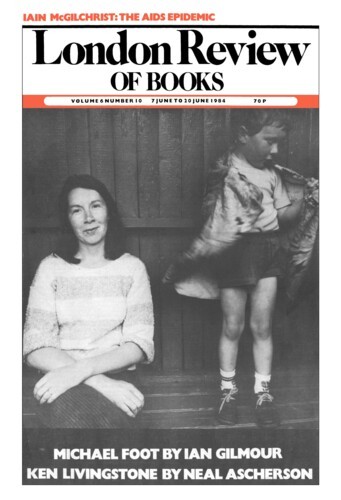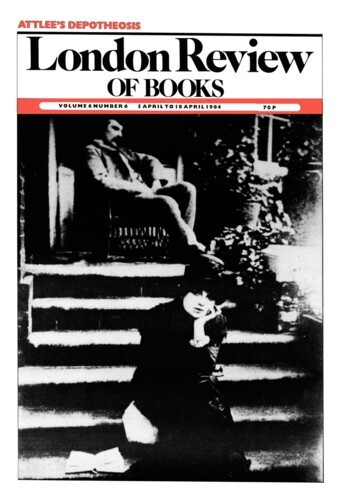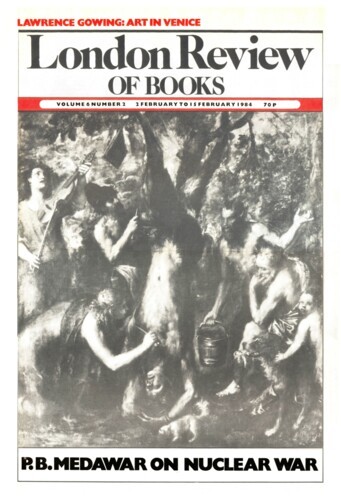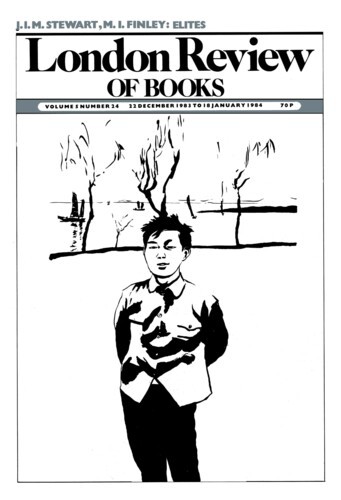Literary Man
J.I.M. Stewart, 7 June 1984
In the third volume of the Lyttelton Hart-Davis Letters George Lyttelton records Hilaire Belloc’s having told him that his mother ‘had seen Napoleon after his return from Elba and he looked un homme rompu’. Whether Napoleon when he landed near Antibes on 1 March 1815 indeed looked rompu historians may have determined: but certainly not with the help of Belloc’s mother, an Englishwoman who was born a little more than fourteen years later. In The Cruise of the Nona, however, Belloc declares that ‘time and again’ in childhood he was told the story of the fall of the Bastille by an eye-witness who was a close friend of his French grandmother. This sufficiently remarkable fact made an enduring impression on him: it was, he declared in 1925, ‘as though some very old person today were to remember having met in childhood a person who had seen John Milton’. But we need not suppose that Lyttelton misunderstood what he was being told. Belloc, he recalls, was busy being ‘great fun’. And mere truth came a poor second to immediate effect with Belloc, whether he was setting out to entertain in company or to demolish an opponent in historical or political controversy.




